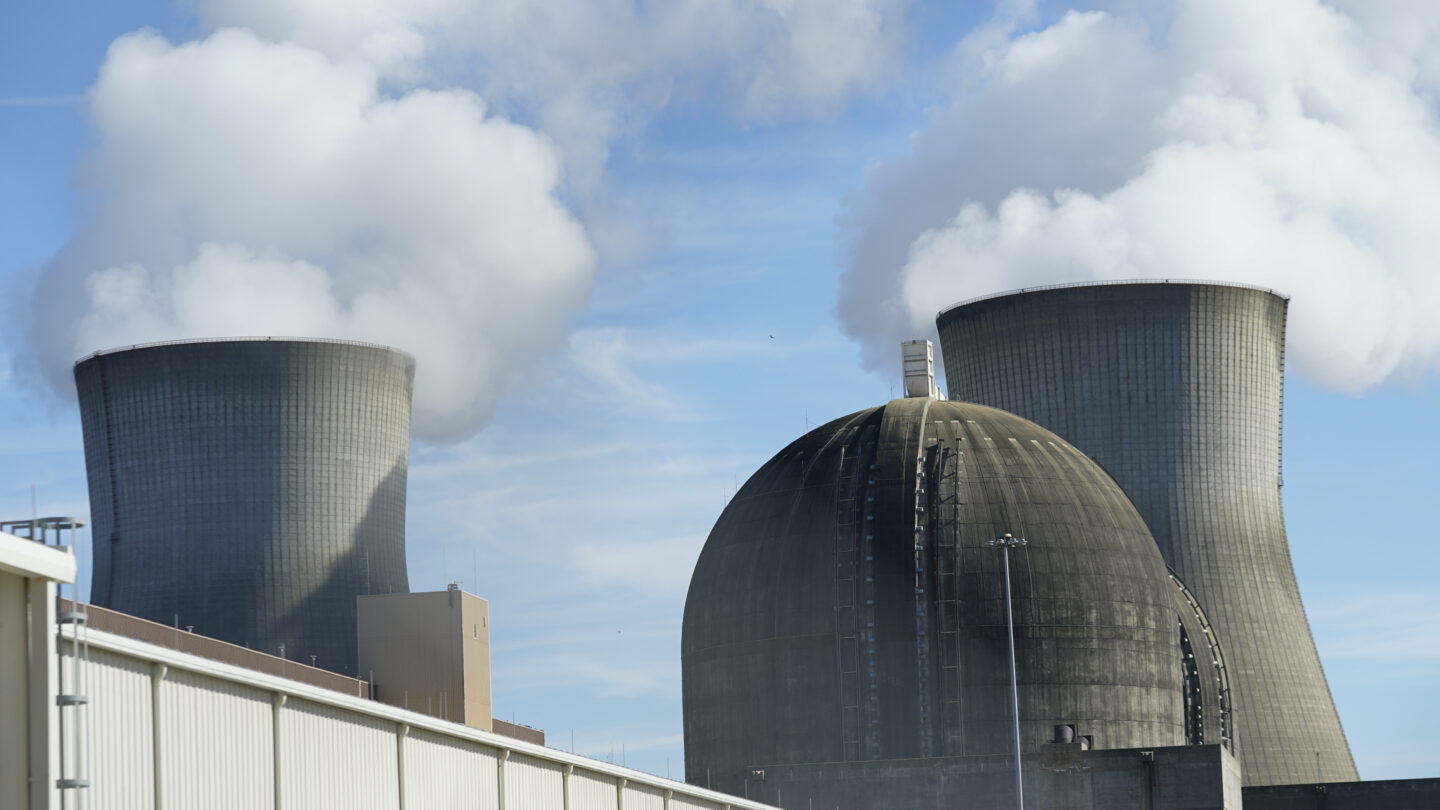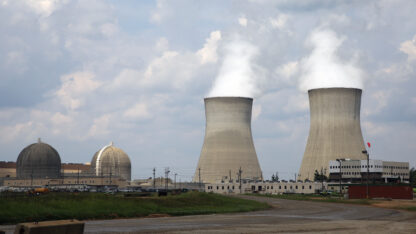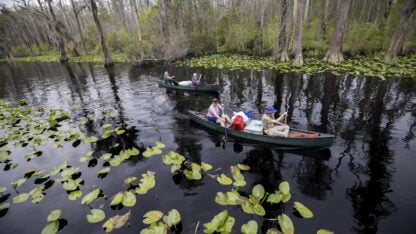Georgia Power Co. has again delayed the projected startup for two new units at its Vogtle nuclear power plant near Augusta, saying its share of the costs will rise by an additional $200 million.
Southern Co., the utility’s Atlanta-based parent, announced the delays and higher costs on Thursday as it announced its yearly corporate earnings for 2022.
Georgia Power says Unit 3 could now begin commercial operation in May or June, pushing back from the most recent deadline of the end of April. The company also now says Unit 4 will begin commercial operation sometime between this November and March 2024. The company previously has promised commercial operation of Unit 4 by the end of 2023 at the latest.
When complete, the two units will be the first entirely new U.S. reactors in decades.
Georgia Power wrote off $201 million in additional costs on its earning statement, reflecting increased costs.
Despite the Vogtle delays, Southern Co. still announced strong revenue and profits. The company reported profits of $3.5 billion for the year, or $3.28 per share.
The total cost of the project to build a third and fourth reactor at Vogtle will cost all its owners more than $30 billion. Georgia Power owns 45.7% of the project, while Oglethorpe Power Corp. owns 30%, the Municipal Electric Authority of Georgia owns 22.7% and the city of Dalton owns 1.6%.
Georgia Power had already pushed back the startup of Unit 3 by a month after it discovered that a pipe that is part of a critical backup cooling system was vibrating during startup testing. Construction workers had failed to install supports called for on blueprints. Those supports have now been installed, the company said Thursday, but Southern Co. Chairman and CEO Tom Fanning told investors that “we found a few additional issues to address.”
“We will continue to take the time to get it right and will not sacrifice safety or quality to meet the schedule,” Fanning told investors on a conference call Thursday.
Fanning told investors that other issues causing delays included a slowly dripping valve that required a now-completed repair, as well as a problem involving the flow through the reactor coolant pumps that hasn’t been pinpointed.
The utility said the Unit 3 reactor is now likely to reach a self-sustaining nuclear reaction, a stage called criticality, in March or April. That’s the last major waypoint before commercial operation.
The company said it was also pushing back its completion dates for Unit 4, citing slower-than-planned testing.
Georgia Power says it will now spend a projected $10.6 billion on construction costs, not counting some financing costs. That’s projected to include $407 million in costs that Georgia Power has assumed from the other owners, after all three sued to force the company to honor a cost-sharing agreement. Georgia Power has settled its lawsuit with MEAG, but the suits with Oglethorpe and Dalton are still ongoing. The company warned it could have to pay those two co-owners another $345 million in the dispute.
Ratepayers at Georgia Power and some cooperatives served by Oglethorpe are already paying for Vogtle, and most electric customers in Georgia, as well as in parts of Alabama and Florida, will eventually be charged.
The effects of the further delay on ratepayers are unclear. Georgia Power has signaled it may not request to be repaid for more than $7.3 billion in capital costs and about $400 million in financing, but could ask for more. The Georgia Public Service Commission, a five-member elected body that sets rates for Georgia Power’s 2.7 million customers, could approve even less spending. Georgia Power must prove any capital costs above $5.68 billion were prudently spent.
Some increased costs will be passed through to municipal utilities served by MEAG. Because they dispute that they owe any more costs for Vogtle, Oglethorpe and Dalton customers might not see further increases because of the delay.
A third and a fourth reactor were approved for construction at Vogtle by the Georgia Public Service Commission in 2009, and the third reactor was supposed to start generating power in 2016. The cost of the third and fourth reactors was originally supposed to be $14 billion.









